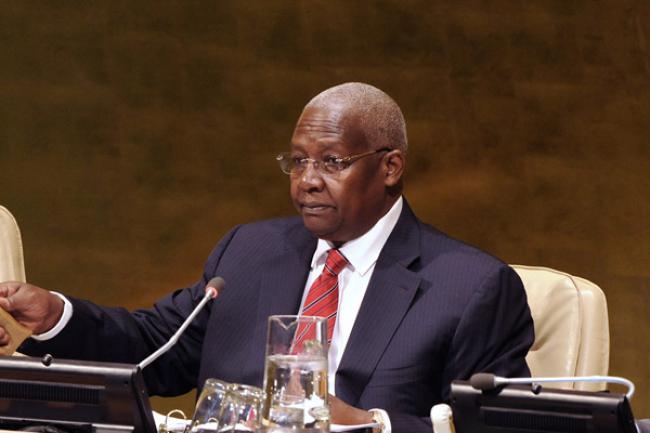23 Sep 2014, 06:28 am Print

Addressing the opening of the Assembly’s special session of the International Conference on Population and Development (ICPD), the President of the 193-Member State body urgedleaders to commit to stronger action.
“Poverty, discrimination, as well as income and wealth inequality threaten economic growth, the well-being of individuals, societies, and our planet, and are relevant to the discussions at on Tuesday’s Climate Summit and the general debate that follows,” Sam Kutesa said.
Highlighting the contributions of Governments and society societies thus far, he called for greater cooperation, partnership and global leadership to the development challenges that continue to plague the world since the 1994 International Conference in Cairo.
Also speaking at the opening of the session, Secretary-General Ban Ki-moon said he looks back with pride on the past 20 years, and looks forward to achieving greater progress for generations to come.
In the past two decades, nearly a billion people have escaped poverty; maternal mortality has been reduced by almost 50 per cent with more women choosing how many children they have and when.
“More laws allow a greater number of people to exercise the rights in the Universal Declaration of Human Rights and the UN Charter,” Ban said.
He noted, however, that millions of people still suffer from hunger, many cannot find meaningful work and cannot enjoy their basic rights.
Ban called for intensifying efforts to achieve the Millennium Development Goals by the 2015 deadline, defining a bold and ambitious post-2015 development agenda and working to deliver a meaningful climate change agreement before the end of next year.
“As we advance on all these fronts, we have to remember the vision of Cairo – especially the priority it placed on reproductive health,” the UN chief said, calling for urgent protection for women.
Some 800 women die each day from causes related to pregnancy or childbirth, according to UN figures. Further, an estimated 8.7 million young women in developing countries resort to unsafe abortions every year.
“We also have to be guided by the wisdom of the Cairo conference as we confront major demographic trends, including urbanization, migration, population ageing and the largest generation of young people in history,” he said.
In 1994 in Cairo, 179 Governments signed the ICPD, landmark agreement that emphasized that population is not just about counting people, but about making sure that every person counts.
Babatunde Osotimehin, Executive Director of the UN Population Fund (UNFPA), stressed that people are the core of each aspect of development, particularly women and their respected roles in society.
“It is the right of people to be able to decide what to do with themselves and what to do with their bodies,” he told journalists highlighting some of the main points from the Cairo conference, “and men to be able to respect women, and society inclusively accepting women as partners in development, that is so crucial.”
He added that the international community must fulfill the commitment that was made in Cairo 20 years ago to make certain that “individual dignity and human rights are the foundation for future that we all wish to see.”
Speaking to the General Assembly later in the day, Osotimehin said that in a world where gender equality in not fully realized and where “all too often women and girls get the short end of the stick.”
“We cannot talk about sustainable development without addressing women’s empowerment, gender-equality and discrimination and violence,” he noted, also calling for the inclusion of young people’s voices in decision-making.
President of the General Assembly Sam Kutesa. UN Photo/Kim Haughton
- Ali Khamenei (1939–2026): Iran’s Supreme Leader who ruled with an iron grip
- Trump signs 10% global tariff, says it takes effect ‘almost immediately’
- BJP wins a seat in Bangladesh — But not the one you think!
- Meet Shabana Mahmood: Could she take over as UK’s first Pakistani-origin Muslim PM?
- Dalai Lama's Office breaks silence on Epstein claims





-1763561110.jpg)
